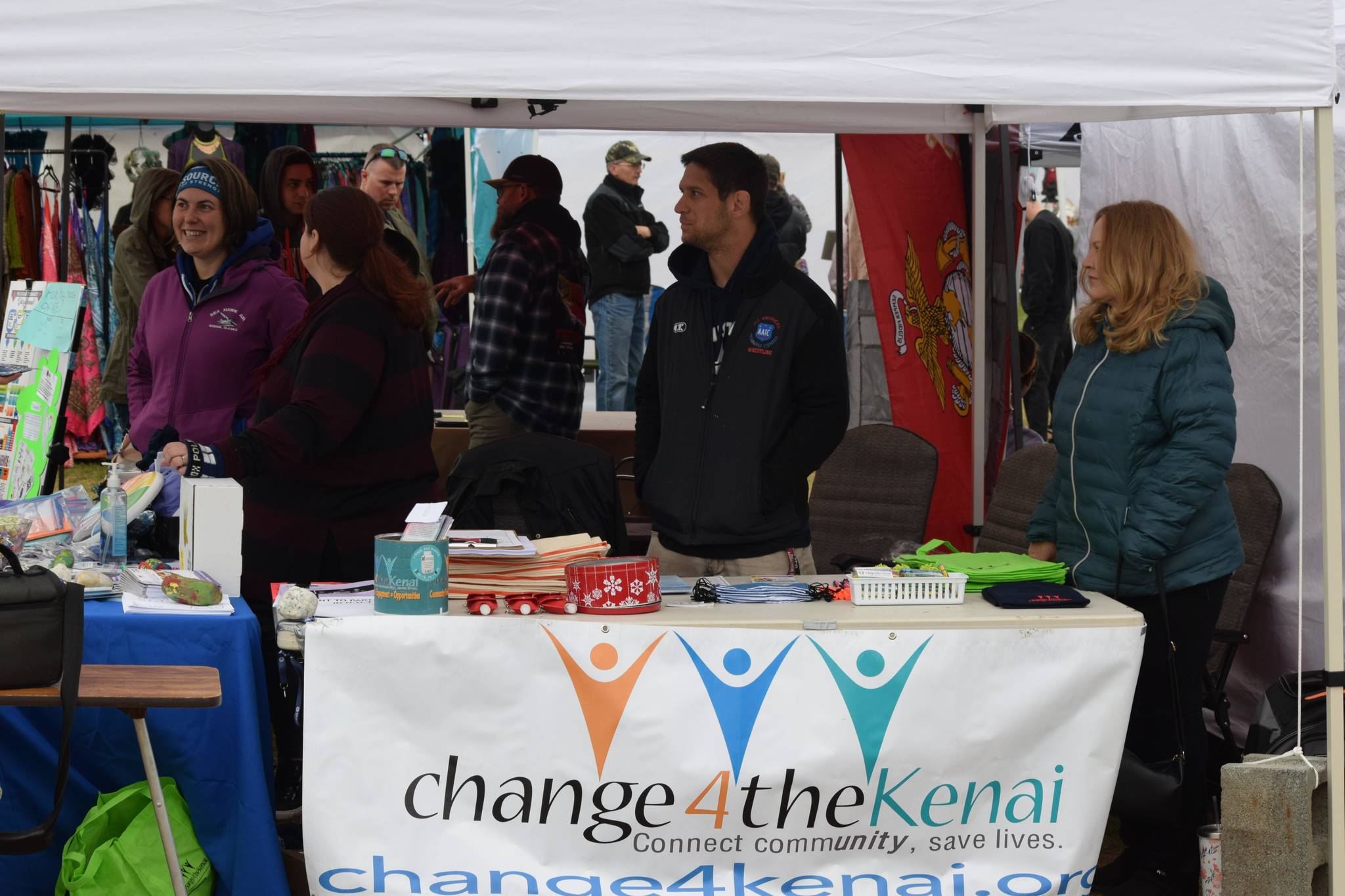Representatives from different social service organizations on the peninsula gathered to provide educational outreach at the market in Soldotna Creek Park on Wednesday.
Emily Alvey, the recidivism prevention liaison for the Kenai Peninsula Borough School District, said she chose primarily to focus on informing parkgoers about issues pertaining to adolescent mental health.
“It’s been pretty great,” she said. “We’re educating on ACEs and resiliency factors.”
ACEs are adverse childhood experiences, which Alvey and her associates said can cause long-term psychological damage into adulthood if not addressed properly.
Aaron Gordon, a representative of Change 4 the Kenai coalition, said he never expects to get a lot of traffic at the booth, but if just a few people find resources he feels accomplished.
“Even as just community members … people in our life come to us all the time with questions that we can’t answer,” Gordon said. “Hopefully, they find what they’re looking for when they get here.”
Carline Lew, an intern at the coalition, said she enjoys the partnership between the community organizations.
“By working together we can emphasize interagency communication,” Lew said.
Alvey said along with the school district and Change 4 the Kenai, the LeeShore Center, Serenity House, Southcentral Alliance for Family Resilience (SAFR) and other groups have joined together in an effort to provide more mental health services to peninsula habitants.
SAFR is one of the newer groups that meets once per month, and has already registered approximately 40 members.
Alvey said learning about ACEs is crucial, especially through her position as a school district employee.
“You know, being trauma informed, having the community be trauma informed to understand those kids and why they maybe act out … is super important to me,” she said. “Once we recognize what the issue is we can start to make change.”
Throughout the pandemic, Sources of Strength, a student-led group advocating for mental health issues, has seen increased engagement, Alvey said. The program draws from eight categories: mental health, family support, positive friends, mentors, healthy activities, generosity, spirituality and medical access.
“I think that the whole pandemic in itself has kind of been a traumatic experience for people. And so understanding trauma, being trauma informed, is incredibly important because as we come out of it, obviously there’s going to be people who this pandemic alone is going to have traumatic impact on,” she said.
The impact of the pandemic on mental health has also been discussed on a statewide level by officials from the Alaska State Department of Health and Social Services.
Emergency department visits for suspected suicide attempts for girls from 12 to 17 years old has increased by 51% during the pandemic, DHSS officials said during a press briefing last week, citing information from the Centers for Disease Control and Prevention. Additionally, 70% of parents with children 18 and younger and adult caregivers have reported adverse mental health symptoms during the pandemic.
Gordon said he doesn’t necessarily hope to see a lot of people at their outreach booths, which are at the Wednesday Market nearly every week.
“Our audience is hopefully somewhat small,” he said. “The old interagency saying is like, ‘You want to work yourself out of a job.’”
For more information on mental health in the Kenai Peninsula Borough School District, Alvey can be reached at 907-260-2305. For more information about Change 4 the Kenai or to learn about mental health and addiction treatment resources, call Shari Conner at 907-714-4521.
The Alaska Careline phone number can be called at 1-800-273-8255 or 1-877-266-4357. People may also receive 24-hour assistance by texting “help” to 839863. The national suicide prevention lifeline phone number is 1-800-273-8255.
Reach reporter Camille Botello at camille.botello@peninsulaclarion.

